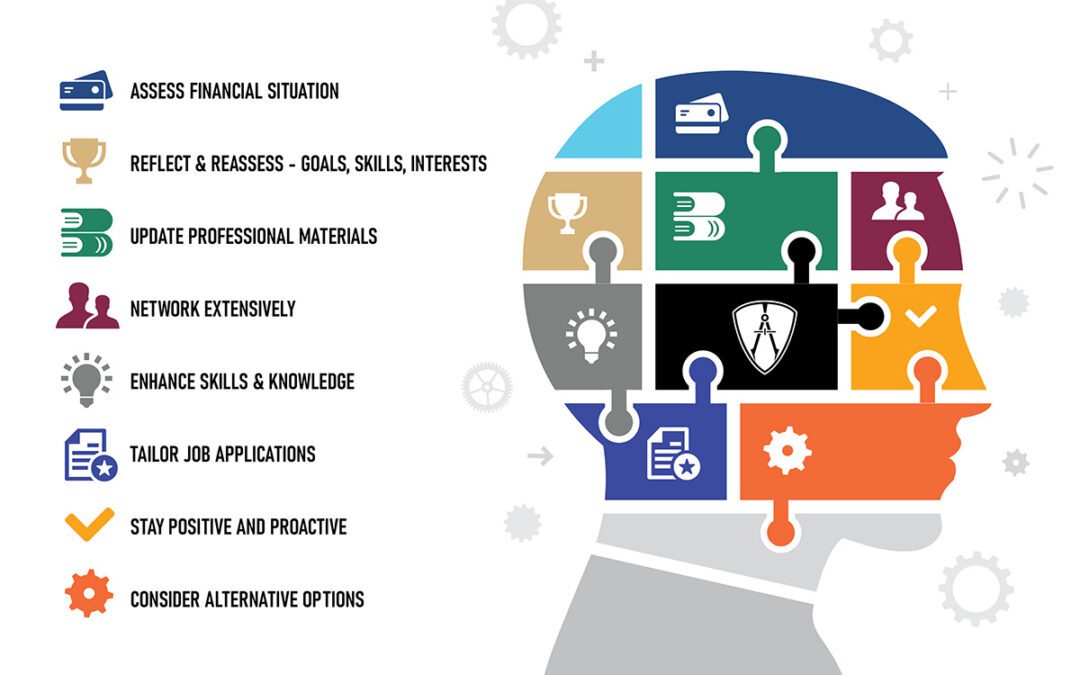Categories
Solution
Share this Post

Losing a job through a layoff can be an incredibly difficult and emotionally trying experience that affects individuals in profound ways. Beyond the immediate financial implications, being laid off can have far-reaching effects that permeate various aspects of our lives, often leading to a cascade of challenges and hardships. From the initial shock and uncertainty to the long-term consequences on our self-esteem, relationships, and overall well-being, the impact of a layoff can be felt deeply. We will explore the multifaceted nature of the effects of getting laid off, shedding light on the different dimensions of this experience and offering insights on how to navigate the journey of recovery and resilience. Through this exploration, we aim to provide support, guidance, and a sense of community to those who have been through this ordeal or may find themselves facing it in the future.
Emotional Impact: You may experience a range of emotions: shock, disbelief, anger, fear, sadness, and a loss of self-esteem. The sudden change in circumstances can be overwhelming and affect your overall well-being.
Loss of Identity and Purpose: Many people derive a sense of identity and purpose from their jobs. Losing a job can lead to a loss of professional identity, leaving you feeling uncertain about your purpose and direction in life. This loss can take a toll on your self-confidence and self-worth. Check out our article about Building and Enhancing Your Personal Brand for tips on becoming a standout candidate and creating your value.
Career Setbacks: A layoff can disrupt your career trajectory and potentially set you back professionally. You may have to start from scratch in your job search or consider career transitions, which can be challenging and time-consuming. This setback can affect long-term career goals and aspirations.
Job Search Difficulties: Finding a new job after a layoff can be a daunting task. You may encounter various difficulties, such as a highly competitive job market, limited job openings in your field, and potential biases against candidates with recent job losses. Rejection and lack of response from potential employers can be demoralizing and prolong the job search process.
- Assess your financial situation: Evaluate your financial standing and determine how long you can sustain yourself without a steady income. Create a budget to manage your expenses and identify areas where you can cut back temporarily. Explore options like unemployment benefits or severance packages, if applicable, to help support your financial stability during the transition period.
- Reflect and reassess: Use this time to reflect on your career goals, skills, and interests. Consider whether you want to continue in the same industry or explore new opportunities. Assess your strengths, weaknesses, and areas for improvement. This self-reflection will help guide your job search and potentially open doors to new paths.
- Update your professional materials: Revise and update your resume, ensuring it reflects your most recent accomplishments and skills. Tailor your resume to match the requirements of potential job opportunities. Update your LinkedIn profile, indicate that you are open to work using the available tags, and consider reaching out to contacts for recommendations or endorsements.
- Network extensively: Networking is crucial during a job search. Reach out to your professional contacts, including former colleagues, supervisors, and industry peers. Attend industry events, join relevant online communities, and engage in conversations to expand your network. Inform them about your job search and ask for advice, referrals, or informational interviews.
- Enhance your skills and knowledge: Take advantage of the transition period to enhance your skills or learn new ones. Consider online courses, workshops, or certifications that can add value to your resume and make you a more competitive candidate. This continuous learning demonstrates your commitment to professional growth.
- Tailor job applications: Customize your job applications for each specific opportunity. Take the time to research the companies you are applying to and align your application materials with their values and requirements. Craft targeted cover letters that highlight your relevant experience and express your enthusiasm for the position.
- Stay positive and proactive: Surround yourself with a support system of friends, family, or fellow job seekers who can provide encouragement. Set daily or weekly goals for job applications, networking, and skill-building. Celebrate small victories along the way to stay motivated.
- Consider alternative options: While searching for a new job, explore alternative options such as freelancing, contract work, or temporary assignments. These opportunities can provide income and keep you engaged professionally while you continue your job search. They may also lead to long-term prospects, which can be converted to direct-hire positions.
- Seek professional assistance: If you find it challenging to navigate the job search process or cope with the emotional impact of job loss, consider seeking assistance from career coaches, job placement agencies, or mental health professionals. They can provide guidance, support, and resources tailored to your specific needs. Remember that the job search process takes time, and rejection is a common part of it. Stay resilient, stay focused, and maintain a healthy work-life balance. By following these steps and staying committed to your goals, you can increase your chances of finding new employment and ultimately finding fulfillment in your career.
Related Blogs



Partner with Sterling.
Experience the Difference.
Our expert teams have the knowledge and experience to drive your success.

